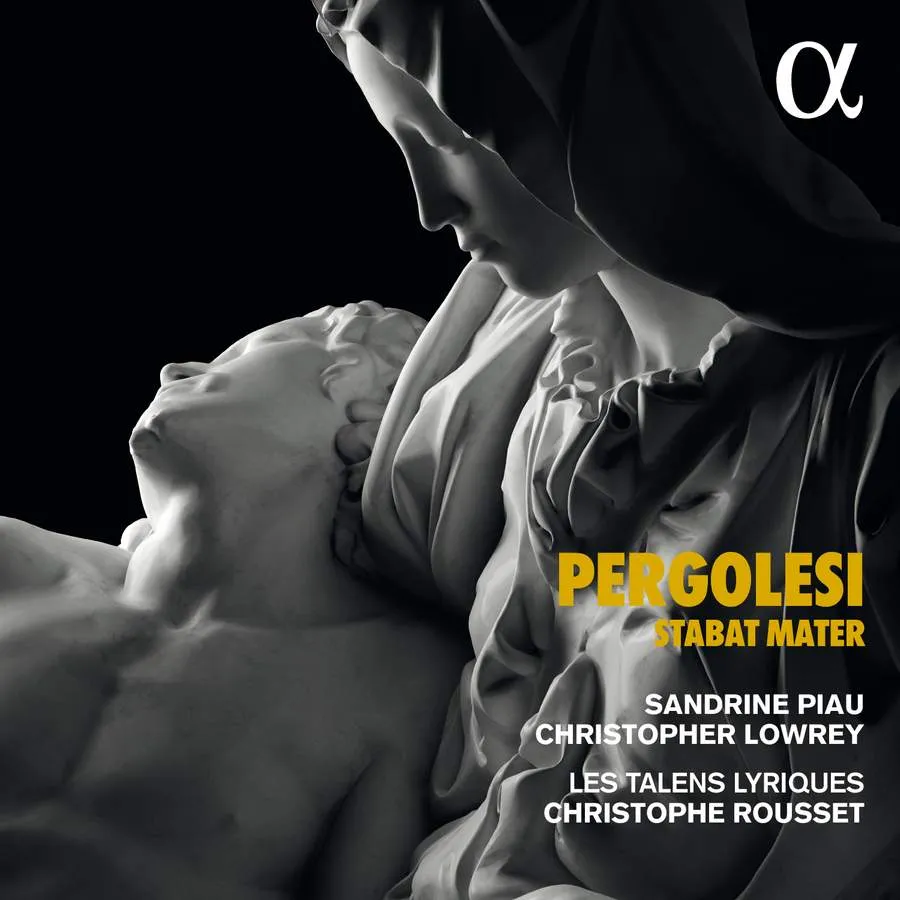
Leo • Pergolesi • Porpora Pergolesi: Stabat Mater; Porpora: Salve Regina in G major; Leo: Beatus Vir Qui Timet Sandrine Piau (soprano), Christopher Lowrey (countertenor); Les Talens Lyriques/Christophe Rousset Alpha Classics ALPHA 449 66:11 mins
The 26-year-old Pergolesi’s death-bed masterpiece is an emotive setting of the Stabat Mater – a medieval Latin poem narrating the Virgin’s sufferings at the foot of the Cross. French director Christophe Rousset first recorded the work back in 1999 with starry soloists Barbara Bonney and Andreas Scholl; the version remains a benchmark. Over 20 years on, he dwells more on the text’s anguished imagery, setting the tone from the outset with a ponderous tread, lingering on suspensions, and highlighting dissonances. Yet ultimately his vision responds more to the lyrical, operatic and gallant qualities of the music than to the work’s devotional intention.
Soprano Sandrine Piau finds just the right balance between beauty of sound and fervent expressivity; stylistically, she’s more at ease with the Neapolitan Baroque idiom, with its filigree lines, than Barbara Bonney was in the earlier recording. She’s partnered by the young countertenor Christopher Lowrey, who combines lucid diction with an aptly plangent sound – always beautifully controlled. Though they’re rather different musical personalities, the two singers respond to each other with particular sensitivity and their voices plait together exquisitely.
Rousset’s 17-member ensemble produces a suave, full-bodied sound (compared to the lean, dry textures of Rinaldo Alessandrini’s 2007 recording using single strings), yet the details are never muddied – thanks in part to Alpha’s luminous recording.
In addition to the Pergolesi, two little-known Neapolitan Baroque works – Nicola Porpora’s mellifluous Salve Regina and Leonardo Leo’s felicitous setting of the psalm Beatus vir – serve as lovely showcases for the two soloists.
Kate Bolton-Porciatti